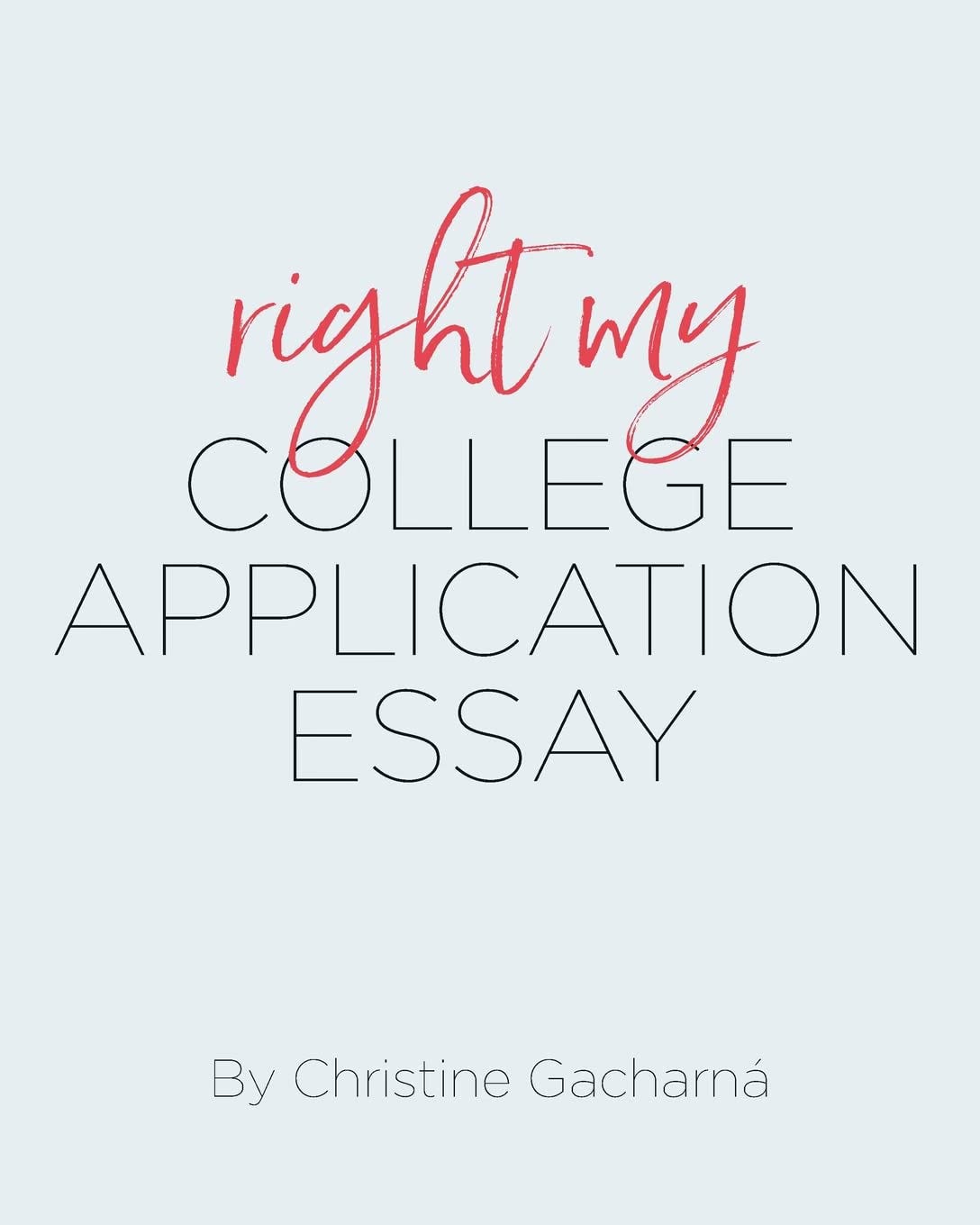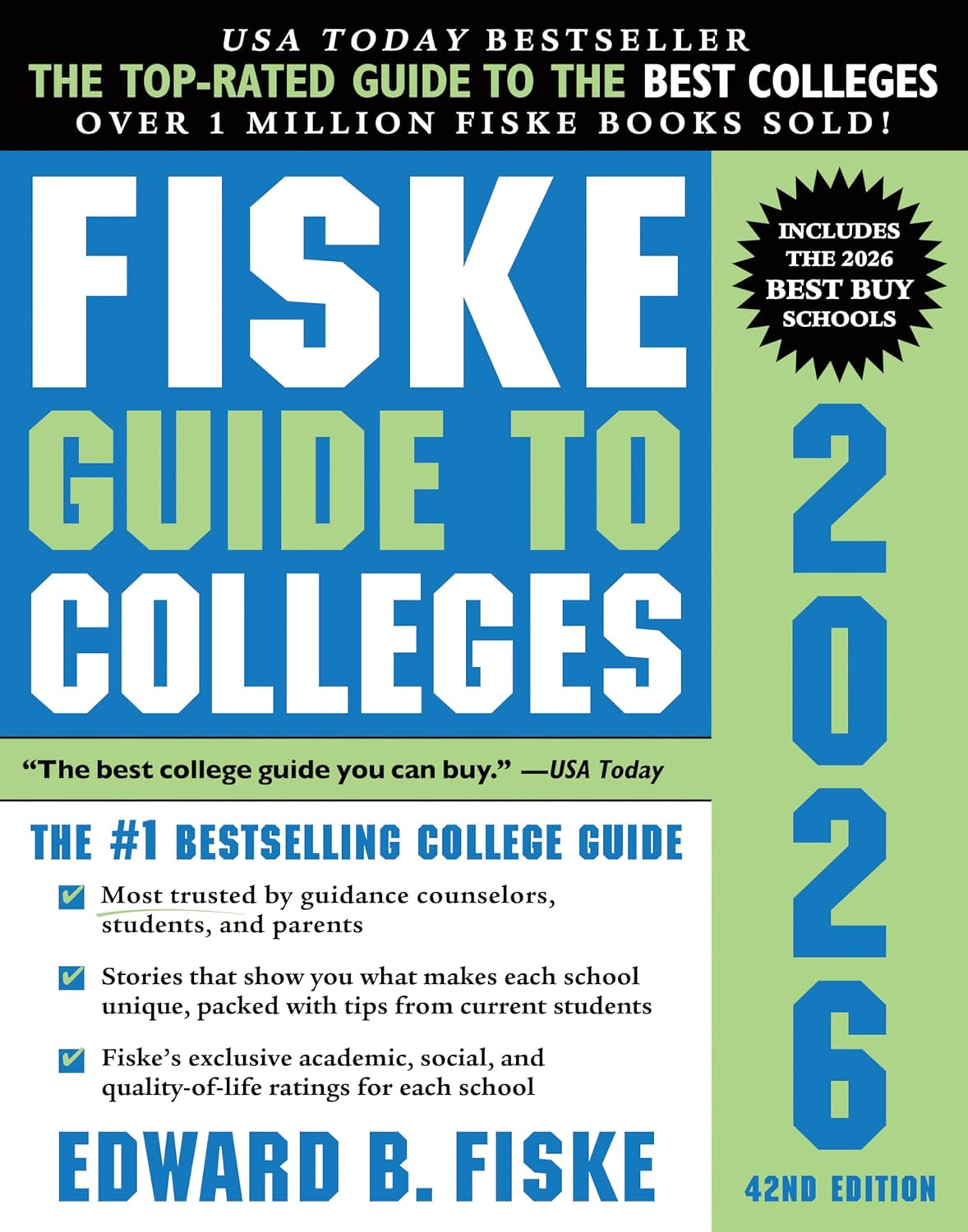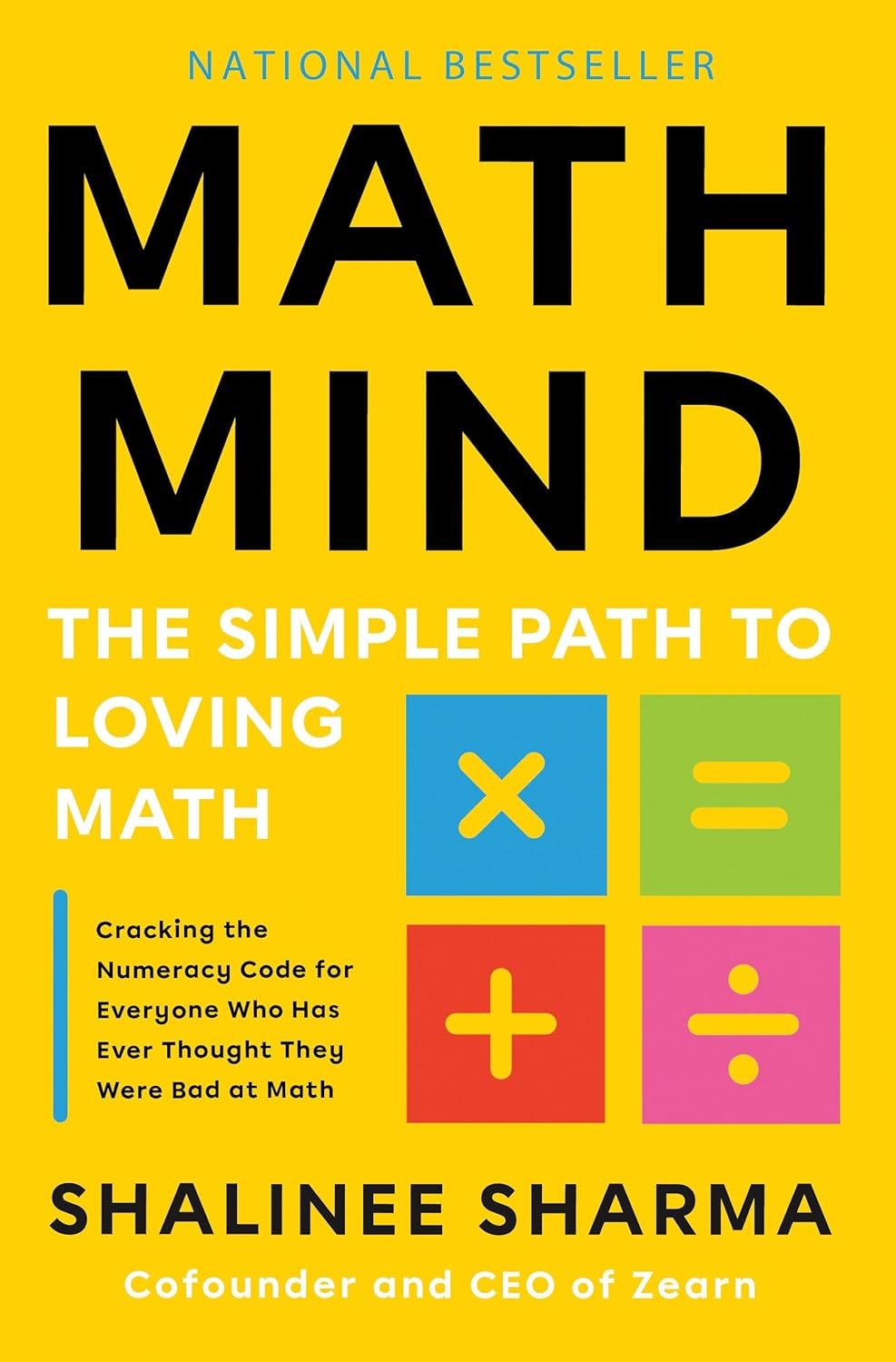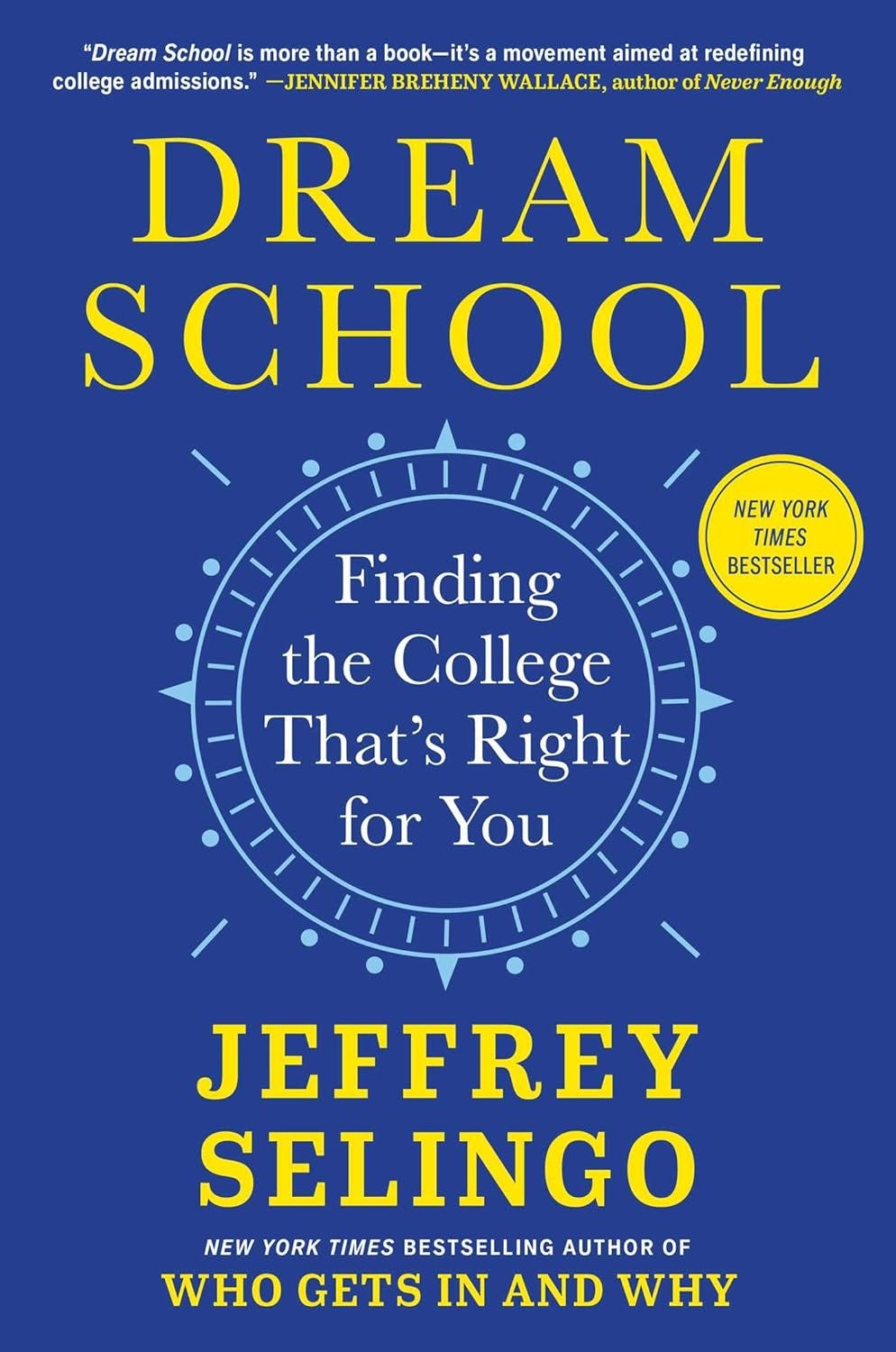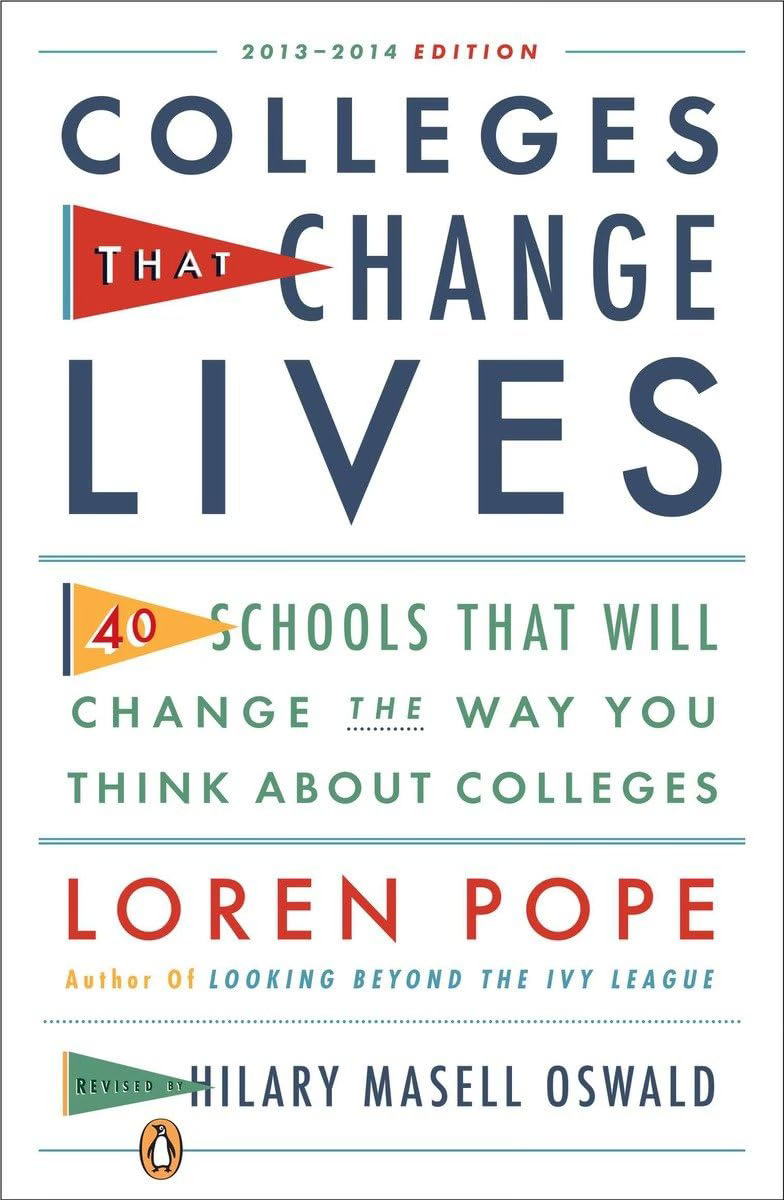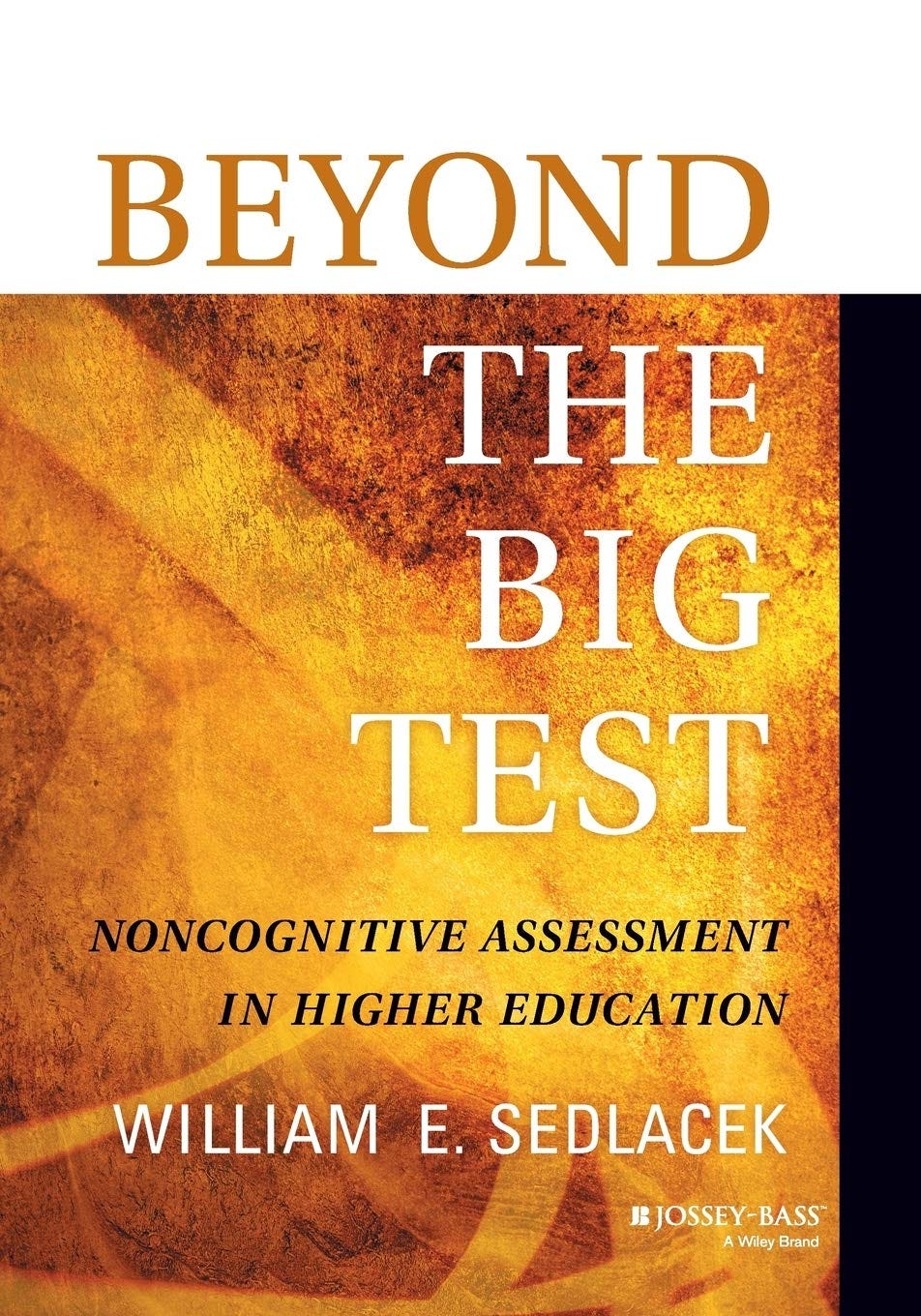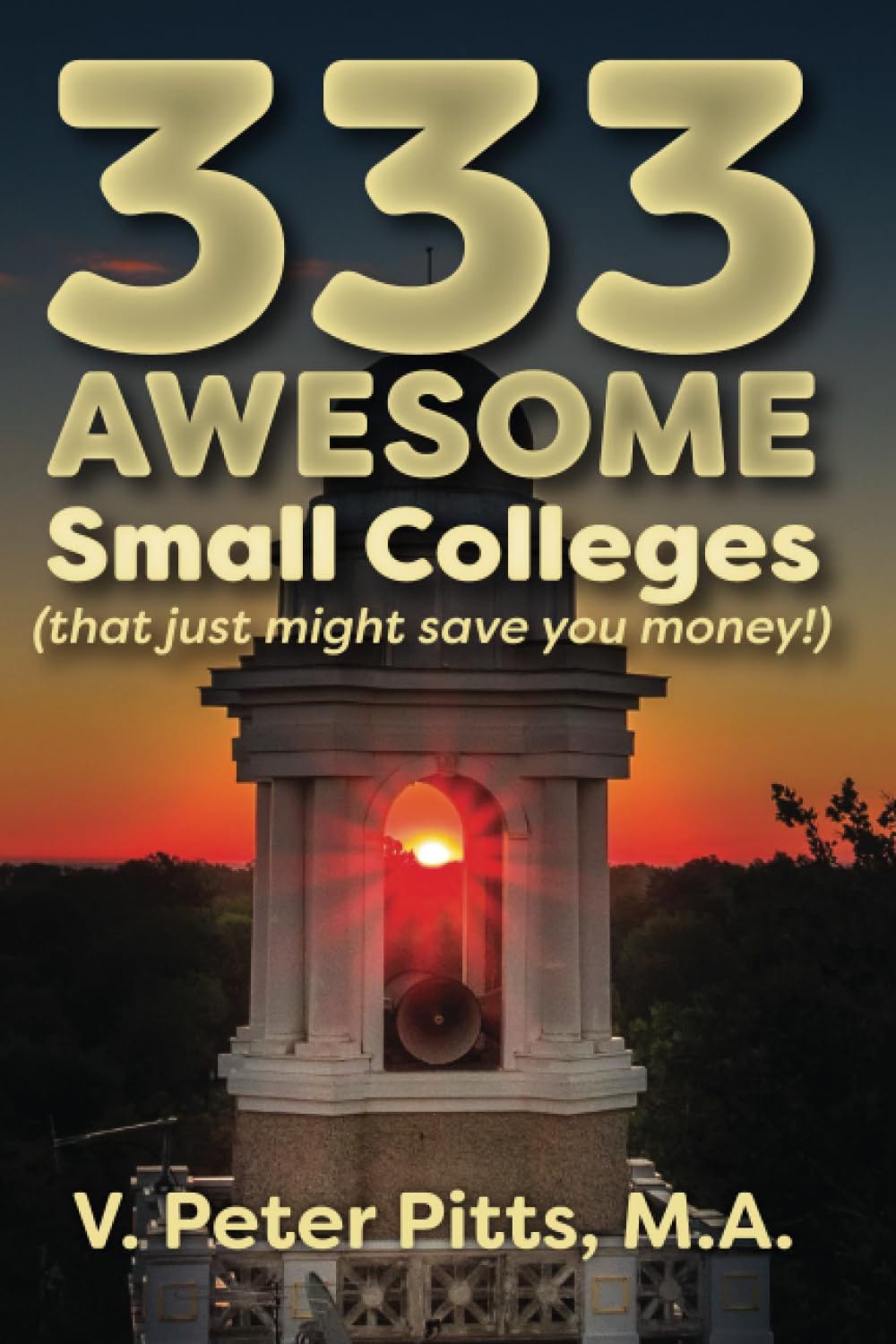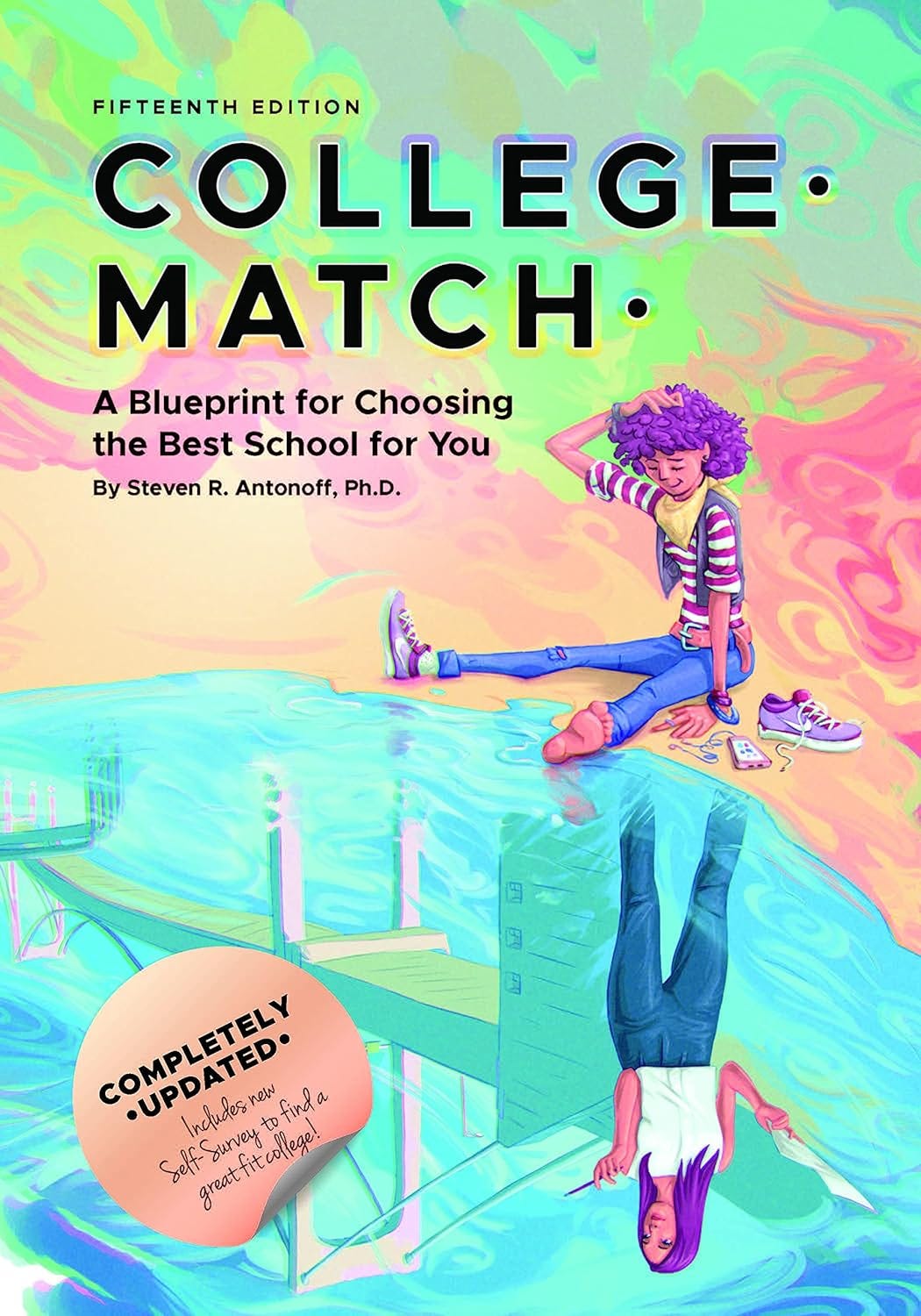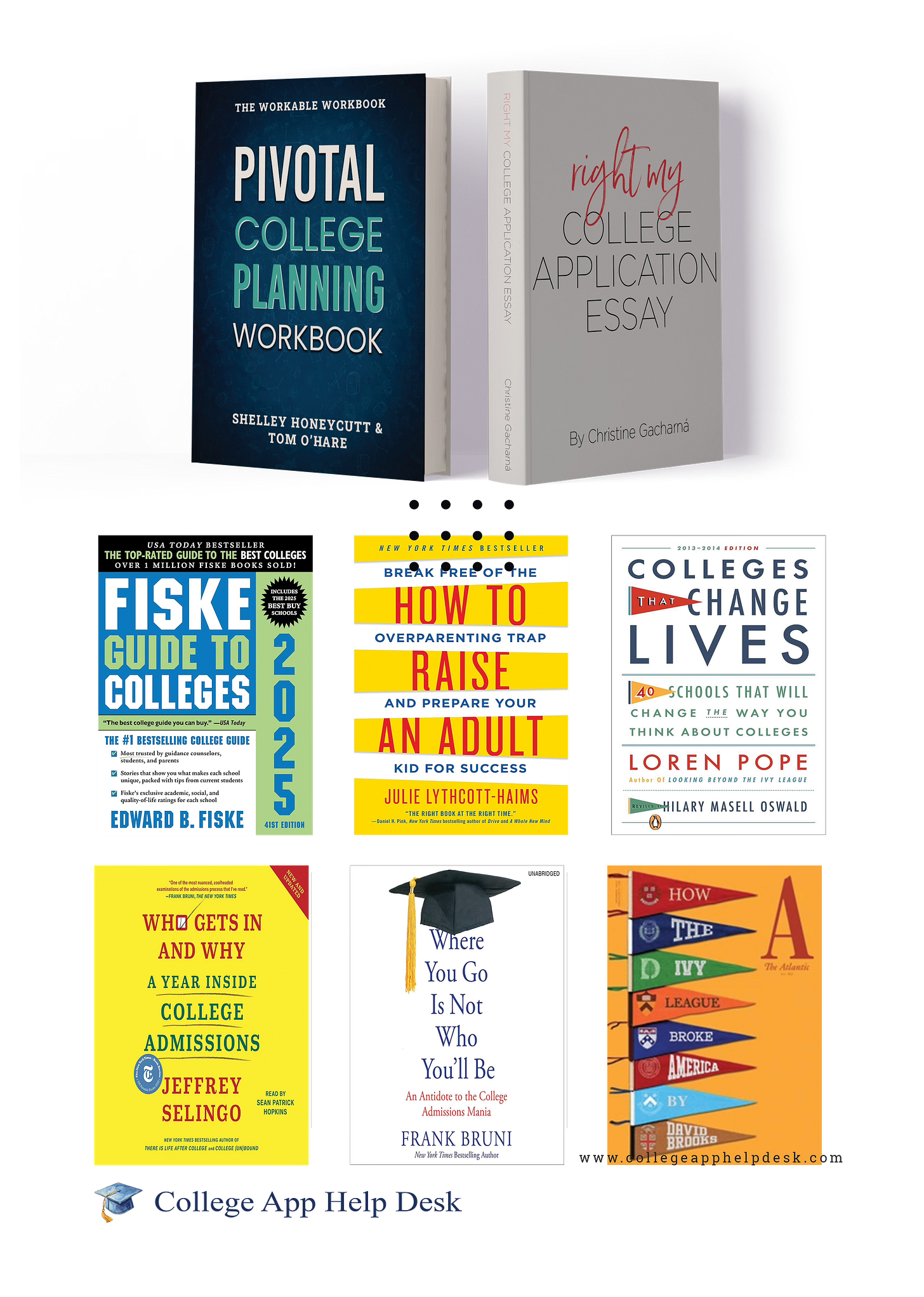Booklist
There are more books than we can share, but we'll regularly update this post with the books and publications that we feel are relevant for parents & students to digest
Kirkus Reviews called RIGHT My College Application Essay “A straightforward guide that makes use of the author’s extensive experience.”
From the author: Back when reading news on paper was still a thing, I was the editor-in-chief of my campus newspaper. I’m an award winning writer and photographer, my work has appeared everywhere from local newspapers to Time magazine (twice!) Editors call me a “two-for” because it doesn't matter if you hand me a camera or a keyboard, I'm a master communicator. I know this stuff backward and forward, inside-out and upside-down.
I taught English in Tokyo for three years and for six years, I taught undergraduate COMM & English courses. I was promoted to Lead Faculty for Communication and responsible for streamlining the teaching and evaluation of student writing.
It was during my time teaching academic writing to undergraduates that my own two kids were going through the process that you’re going through now. So between my kids, my friends’ kids, and my kids’ friends, I was up to my elbows in college application essays. And what I saw was that they were all making the same mistakes, and it all boiled down to high schoolers not really understanding the backbone of academic writing at the undergraduate level.
And that’s when I had my ah-ha moment and created the instruction that led to this book.
For many students, writing the essay is the most daunting task in the college application process — & for good reason! They’ve spent most of their academic lives in one rhetorical mode, and the college application essay is their first experience wresting an unfamiliar method of communication.
In my experience teaching college essay writing, lots of students admit to spending at LEAST 10 minutes staring at the blank page before starting the assignment. Many admit to spending 30 minutes or more.
The reason students sit paralyzed in front of the blank page is because they aren’t confident using the steps in the process. They think it’s about the writing, so they sit there, staring, wondering how to create something that “sounds good.”
Communicate. Navigate. Punctuate.© is the trademark of this instruction. We use alliteration to help students learn and remember the process so they can 1) unlearn bad habits developed by getting by in high school and 2) develop new muscle memory around using the steps in the RIGHTING process which incorporates the tools professional writers use plus the three most important components of writing.
Forget about being labeled as a “good writer” or a “bad writer” in high school — it doesn’t matter! This isn’t an application for an MFA in creative non-fiction. This is a college application essay. This is undergraduate academic writing.
Academic writing follows formulas and is evaluated by measurable goals. Once students learn to use the tools, the emphasis returns to where it will need to be in college — absorbing and understanding new and complex concepts and ideas and being able to communicate those ideas back to professors in the form of an academic essay that will be graded and will factor into large portions of their undergraduate grades.
We demystify academic writing and we start with the the college application essay, so while students are getting this college application monkey off their back, they’re leveling-up their writing skills to compete and succeed at an undergraduate level.
A "Workable, Workbook" available for College Planning, Pivotal College Planning Workbook is a simplistic, step-by-step method to plan a student’s college journey with confidence.
Authors Shelley Honeycutt & Tom O’Hare worked in collaboration with some of the top college planners in New England to create this workbook. Although these experts serve students nationally and internationally, they share their methods, techniques, and experience, which can be used by students anywhere. The workbook is filled with organizational charts, activities, questionnaires, and examples. The workbook also offers additional support via its YouTube Channel and other online sources.
Author Tom O’Hare has dedicated many hours to advising students via College App Help Desk and is a vetted and trusted ESSAY CURE partner.
The College Admissions Process Podcast
Relevant podcast episodes: Inside the Yale Admissions Office and Admissions Beat from Dartmouth
What they’re looking for: MIT, UVA, CalTech, Georgia Tech
Worried about tuition? Here’s a simplified college cost estimator.
More books that College App Help Desk contributors have found useful for students:
Students and parents should swap “rankings” for the Fiske Guide to Colleges and focus on the details of a particular school that makes it a good fit for a student.
Former New York Times education editor Edward B. Fiske tells stories about schools, including quotes from real students and information you won't find on college websites.
[Editor’s note: Look — I wrote a book on how to write a college application essay, and I still found this book super engaging and informative!]
On average, an admissions committee takes seconds to decide whether to admit a student. They must sum up the student in one sentence that will tell them if a student is going to be a good fit for their program. This book shows students how to crack the code.
Full disclosure, I haven’t finished reading this book yet, but I attended a webinar to listen to the author speak and I was impressed by her background and motivations for writing this book. As a writer myself, I love it when an author presents a premise and supports it well — even if I don’t agree with the premise!
In this case, I agree with the author’s premise that many of us buy into the idea that we are either innately good at math or we’re not—but that’s not true.
Numeracy is as important as literacy when it comes to opening doors in life.
September 9, 2025: Jeffrey Selingo is no stranger to the college admissions discussion, and I always enjoy listening to what he has to say. In Dream School, Mr. Selingo shifts the spotlight from how colleges pick students to how students can better pick colleges.
Dream School reveals what really matters in a college: strong job prospects after graduation, hands-on learning experiences, and a sense of belonging.
William E. Sedlacek is the nation's leading authority on noncognitive assessment; he challenges the use of the SAT and other standardized tests as the sole assessment tool for college and university admissions.
In Beyond the Big Test, Sedlacek presents a noncognitive assessment method that can be used alongside standardized tests to measure what students know by evaluating what they can do and how they handle a wide range of problems across different contexts.
Educators have used his innovative method to:
• Select a class diverse on dimensions of race, gender, and culture in a practical, legal, and ethical way
• Teach a diverse class employing techniques that reach all students
• Counsel and advise students in ways that consider their culture, race, and gender
• Award financial aid to students with potential who do not necessarily have the highest grades and test scores
• Assess the readiness of an institution to educate and provide services for a diverse student body
V. Peter Pitts, “the Small College guy” has gone web surfing---looking for more cool and unique programs at 333 affordable small colleges.



